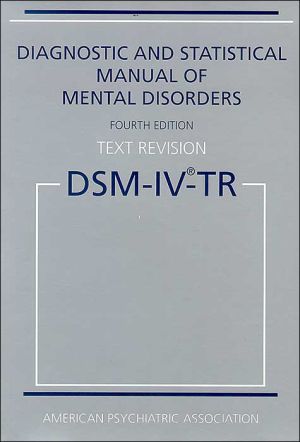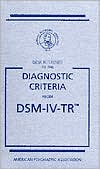Dissertations and Theses from Start to Finish: Psychology and Related Fields
This publication helps graduate students in psychology and other related fields to plan the thesis and dissertation process from beginning to end. Clearly written, the authors successfully mentor students by advising them, answering their questions, and breaking down what may seem like an overwhelming and unsurmountable task into a series of concrete and manageable steps.\ \ "...helps graduate students to apply what they have already learned to the practical conduct of...
Search in google:
This publication helps graduate students in psychology and other related fields to plan the thesis and dissertation process from beginning to end. Clearly written, the authors successfully mentor students by advising them, answering their questions, and breaking down what may seem like an overwhelming and unsurmountable task into a series of concrete and manageable steps. Doody Review Services Reviewer:Gary B Kaniuk, Psy.D.(Cermak Health Services)Description:This book describes the dissertation/theses process from start to finish. The step-by-step guide will help the reader complete a seemingly monumental task. The first edition was published in 1993.Purpose:According to the authors, their purpose is as follows: "Our major purpose in writing the first version of this book was to help students. We have received many letters, e-mails, and other communications from students (and from the occasional dissertation supervisor!) expressing thanks, so we believed we had accomplished our goal. We also received some constructive criticism and began to realize that some of our material had become out of date. In revising this volume, we have updated each of the chapters in significant ways." Audience:The intended audience is graduate students in psychology and related fields. Dr. Cone is a fellow of both the American Psychological Association and the American Psychological Society. Dr. Foster is a professor at Alliant International University in San Diego and has served as associate editor for Behavioral Assessment and the Journal of Consulting and Clinical Psychology. Features:The book's 14 chapters walk students through the process of beginning and completing a thesis or dissertation. It is easy to read and extremely practical. Beginning with the second chapter, there is a "to do" list at the end of the chapter, with specific steps, based on the chapter contents. Wonderful exhibits help elucidate the material. All of the chapters are great, not a bad one in the bunch. The only appendix, Selected Ethical Standards Relevant to the Conduct of Research in Psychology, part of the Ethical Principles of Psychologists and Code of Conduct from 2002, will help students become aware of the ethical responsibilities when writing such a large project and communicating the results to others. Another nice feature is the supplemental resources listing at the end of most of the chapters. This book is like sitting with your advisor and getting answers to all your questions. These authors know how to communicate the material.Assessment:This is a wonderful resource for any graduate student in psychology or related fields. In fact, it is must-reading in order to do a thesis/dissertation well. If I would encourage a student to buy any particular book, besides their required textbooks, this would be the one. No advisor or chairperson has the time to tell you all this important information and the book is reasonably priced. Because it's been almost 15 years since the first edition, this new edition is justified. The chapters have been updated and new information added.
Ch. 1What are theses and dissertations and why write a book about them?3Ch. 2Starting out : assessing your preparation for the task ahead11Ch. 3Time and trouble management31Ch. 4Finding topics and faculty collaborators45Ch. 5Formulating and communicating your plans : an overview of the proposal81Ch. 6Reviewing the literature95Ch. 7Research methodology and ethics127Ch. 8Measurement161Ch. 9Selecting the appropriate statistics187Ch. 10Collecting, managing, and analyzing the data227Ch. 11Presenting the results249Ch. 12Discussing the results269Ch. 13Managing committee meetings : proposal and oral defense289Ch. 14Presenting your project to the world313AppSelected ethical standards relevant to the conduct of research in psychology335
\ From The CriticsReviewer: Gary B Kaniuk, Psy.D.(Cermak Health Services)\ Description: This book describes the dissertation/theses process from start to finish. The step-by-step guide will help the reader complete a seemingly monumental task. The first edition was published in 1993.\ Purpose: According to the authors, their purpose is as follows: "Our major purpose in writing the first version of this book was to help students. We have received many letters, e-mails, and other communications from students (and from the occasional dissertation supervisor!) expressing thanks, so we believed we had accomplished our goal. We also received some constructive criticism and began to realize that some of our material had become out of date. In revising this volume, we have updated each of the chapters in significant ways." \ Audience: The intended audience is graduate students in psychology and related fields. Dr. Cone is a fellow of both the American Psychological Association and the American Psychological Society. Dr. Foster is a professor at Alliant International University in San Diego and has served as associate editor for Behavioral Assessment and the Journal of Consulting and Clinical Psychology. \ Features: The book's 14 chapters walk students through the process of beginning and completing a thesis or dissertation. It is easy to read and extremely practical. Beginning with the second chapter, there is a "to do" list at the end of the chapter, with specific steps, based on the chapter contents. Wonderful exhibits help elucidate the material. All of the chapters are great, not a bad one in the bunch. The only appendix, Selected Ethical Standards Relevant to the Conduct of Research in Psychology, part of the Ethical Principles of Psychologists and Code of Conduct from 2002, will help students become aware of the ethical responsibilities when writing such a large project and communicating the results to others. Another nice feature is the supplemental resources listing at the end of most of the chapters. This book is like sitting with your advisor and getting answers to all your questions. These authors know how to communicate the material.\ Assessment: This is a wonderful resource for any graduate student in psychology or related fields. In fact, it is must-reading in order to do a thesis/dissertation well. If I would encourage a student to buy any particular book, besides their required textbooks, this would be the one. No advisor or chairperson has the time to tell you all this important information and the book is reasonably priced. Because it's been almost 15 years since the first edition, this new edition is justified. The chapters have been updated and new information added.\ \ \ \ \ BooknewsA book written by two long-time professors to help graduate students in psychology and related fields negotiate the thesis and dissertation process from beginning to end. Annotation c. Book News, Inc., Portland, OR (booknews.com)\ \








